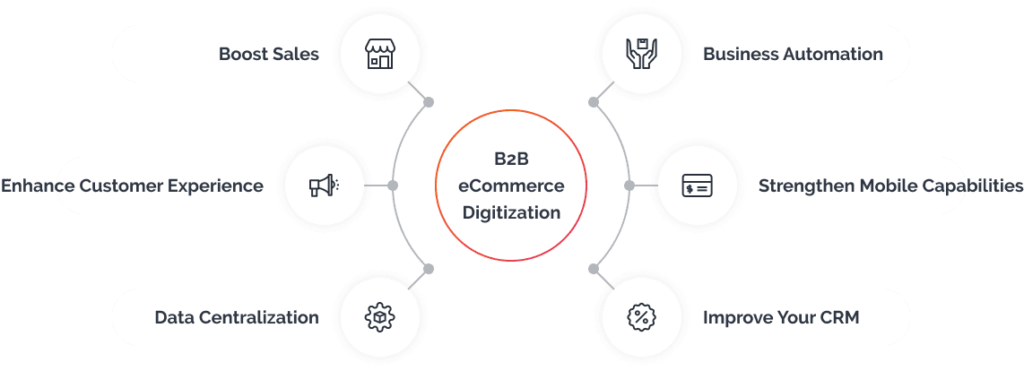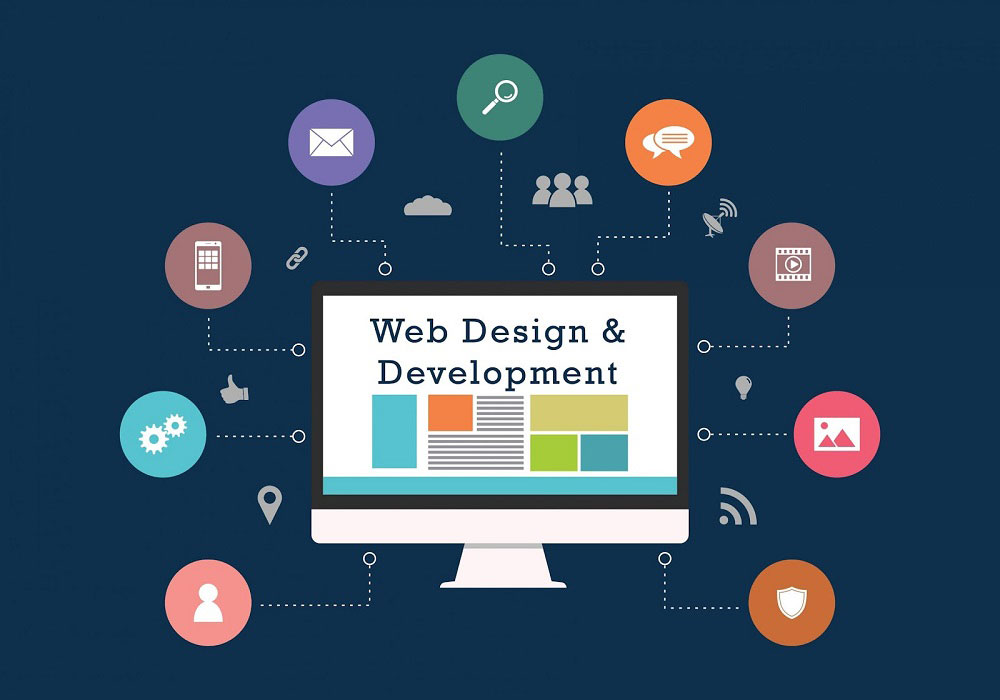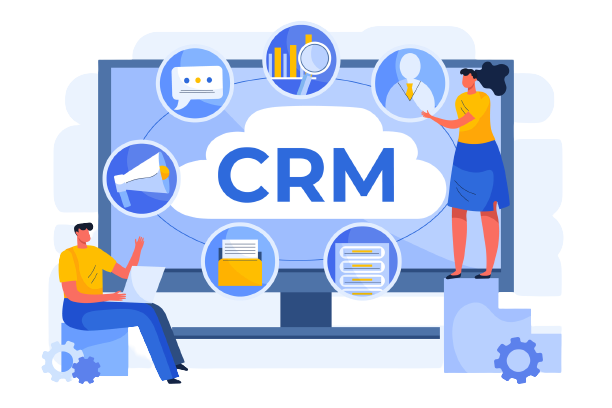B2B eCommerce solutions for Manufacturers

Laying the technical foundation for B2B business success

Why do manufacturers need B2B ecommerce digitization?

Boost Sales
For businesses, digital commerce has a number of advantages. By automating laborious procedures and optimising supply-chain operations, it lowers overhead costs and boosts sales by increasing customer visibility. However, we are aware that in order to deliver products to final consumers, manufacturers also collaborate with wholesalers and retailers. This can result in many types of B2B selling, such as running several selling channels concurrently, maintaining control along the entire value chain (B2B2C), or participating in multi-vendor marketplace selling. You can design unique portals for distributors, wholesalers, or retailers with our B2B eCommerce solutions. By doing this, you may provide them the option to place orders online with contract pricing and specially selected catalogues, providing your customers personalized experiences as soon as they log in.

Scalability
E-commerce considerably expands your capacity for processing orders without necessitating the recruitment of additional distributors or sales representatives. Without having to see the customers in person, non-customizable goods can be sold right away. Additionally, you may easily access new markets and draw in new clients. As opposed to conversing with a salesperson, 68% of B2B consumers prefer to conduct their research online, therefore search engines are crucial for attracting new customers to your website. Therefore, improving your SEO and having a strong online presence are essential for bringing in new clients and gaining a competitive edge.

Enhance Customer Experience
Enhance Customer Experience Buyers of today want the freedom to research, shop, and order using any device, whenever they want, and on their own terms. Self-service eCommerce is what they desire. However, choosing any eCommerce solution, integrating it into your website, and making your product catalogue available online are not the only steps in B2B eCommerce for manufacturing enterprises. We intend to develop the most adaptable manufacturer eCommerce solution for B2B companies because no two manufacturers are alike. The B2B eCommerce platform developed by us provides many buyer self-service options, including:
- automating product re-stocks
- managing past orders & invoice statuses
- supporting online requests for quotes, and more

Data centralization
A B2B eCommerce platform, as opposed to traditional channels, will enable you to use personalisation features to provide consumers with the best product, complete with prices, product descriptions, and shipping details tailored to their needs. Additionally, these experiences can continue to be consistent as consumers switch between different devices and communication methods. Manufacturers can increase conversions, average order values, and repeat business by providing consistent omnichannel experiences. Businesses may effortlessly manage websites for many regions, brands, or clients using our B2B eCommerce solutions from a single admin panel.

Transform into D2C
Manufacturers who sell directly to consumers profit greatly, enjoying larger margins, increased brand recognition, and access to priceless customer information. But they must watch out that their B2C activities don't undermine their current distribution systems.We build B2B eCommerce systems that result in adaptable processes that may accommodate any manufacturer-distributor relationship. Our adaptable online store platform can:
- accept orders through your B2B eCommerce website, then decide which distributors should carry out those orders based on distributor performance, location, or a round-robin method
- develop e-commerce websites that you can use to drop-ship products on behalf of your distributors
- create specialised websites that provide distributors price breaks while selling your products at a premium.

Improved efficiencies
The efficiency and effectiveness of purchasing can be increased for manufacturers and other B2B sellers when orders are completed digitally. You may automate time-consuming manual procedures like checkout, billing, and inventory management by employing an ecommerce platform. Consequently, you free up time and resources for other essential business operations like marketing and customer service.
List of robust features you’ll get with our B2B eCommerce Solutions
Catalog Management
Access controls, roles & permissions
Multiple webstore management
Custom workflows
Inventory management
Promotions & tax management
Account management
Multiple shopping & pricing lists
Advanced segmentation capabilities
Content management systems
Quotes & orders management
SEO management
The results we deliver

Frequently asked questions
- Know your audience: Knowing your target market is one of the most crucial factors to take into account when developing a B2B ecommerce portal for manufacturing. You’re presumably targeting a variety of buyers, including OEMs, resellers, and end users, so it’s critical to comprehend their requirements and the processes by which they decide which products to acquire.
- Choose the right platform: Select the ideal B2B ecommerce platform once you’ve determined your target market. There are many options, but it’s crucial to pick the one that’s best for your business.
- Consider your product digital catalog: It’s crucial to think about the kinds of things you’ll be selling online when building a B2B ecommerce portal for manufacturing. Whether you want to sell finished things, raw materials, or both, is something you must decide. If you intend to sell finished goods, consider your inventory and transportation strategies. Verify your vendors can supply your demand if you are selling raw materials.
- Set up your ecommerce logistics to align with offline sales: Your logistics for online orders are one of the most crucial factors to take into account when creating a B2B ecommerce portal for manufacturing. Choose your procedures for handling orders, delivery, and returns.
- Promote your portal: Once your manufacturing B2B e-commerce portal has been launched, advertise it to draw customers. To reach your target audience, you can employ a variety of marketing methods.


















